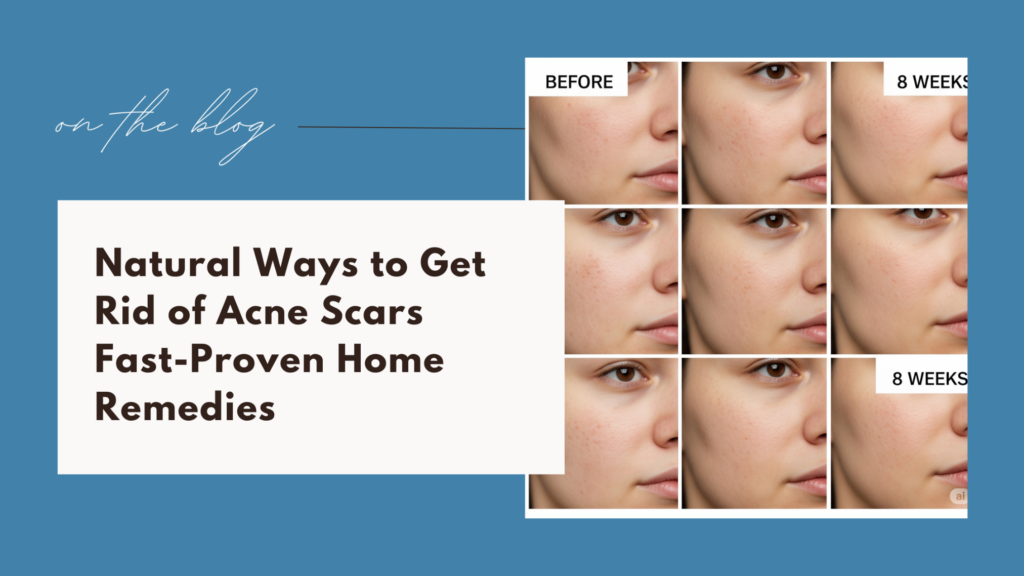After struggling with acne scars for years, I discovered that natural ways to get rid of acne scars fast can be incredibly effective when used consistently and correctly. Through extensive research and personal experience, I’ve found that nature provides powerful ingredients capable of promoting skin healing, reducing pigmentation, and improving overall skin texture without the harsh side effects of chemical treatments.
The key to success with natural acne scar treatments lies in understanding which ingredients target specific types of scarring and how to use them properly. Moreover, combining multiple natural approaches creates synergistic effects that accelerate healing and deliver visible results faster than using single remedies alone.
Understanding Different Types of Acne Scars
Before diving into natural treatments, I’ve learned that identifying your scar type determines which remedies will work best. Atrophic scars create depressions in the skin, including ice pick, boxcar, and rolling scars, while hypertrophic scars appear raised above the skin surface.
Post-inflammatory hyperpigmentation, though technically not scarring, creates dark spots that many people associate with acne scars. These respond particularly well to natural lightening ingredients, whereas true textural scarring requires approaches that stimulate collagen production and cellular renewal.
Understanding your specific scarring pattern helps prioritize which natural treatments to focus on first. Furthermore, this knowledge prevents wasting time on inappropriate remedies and helps set realistic expectations for improvement timelines.
Vitamin C: The Collagen Building Powerhouse
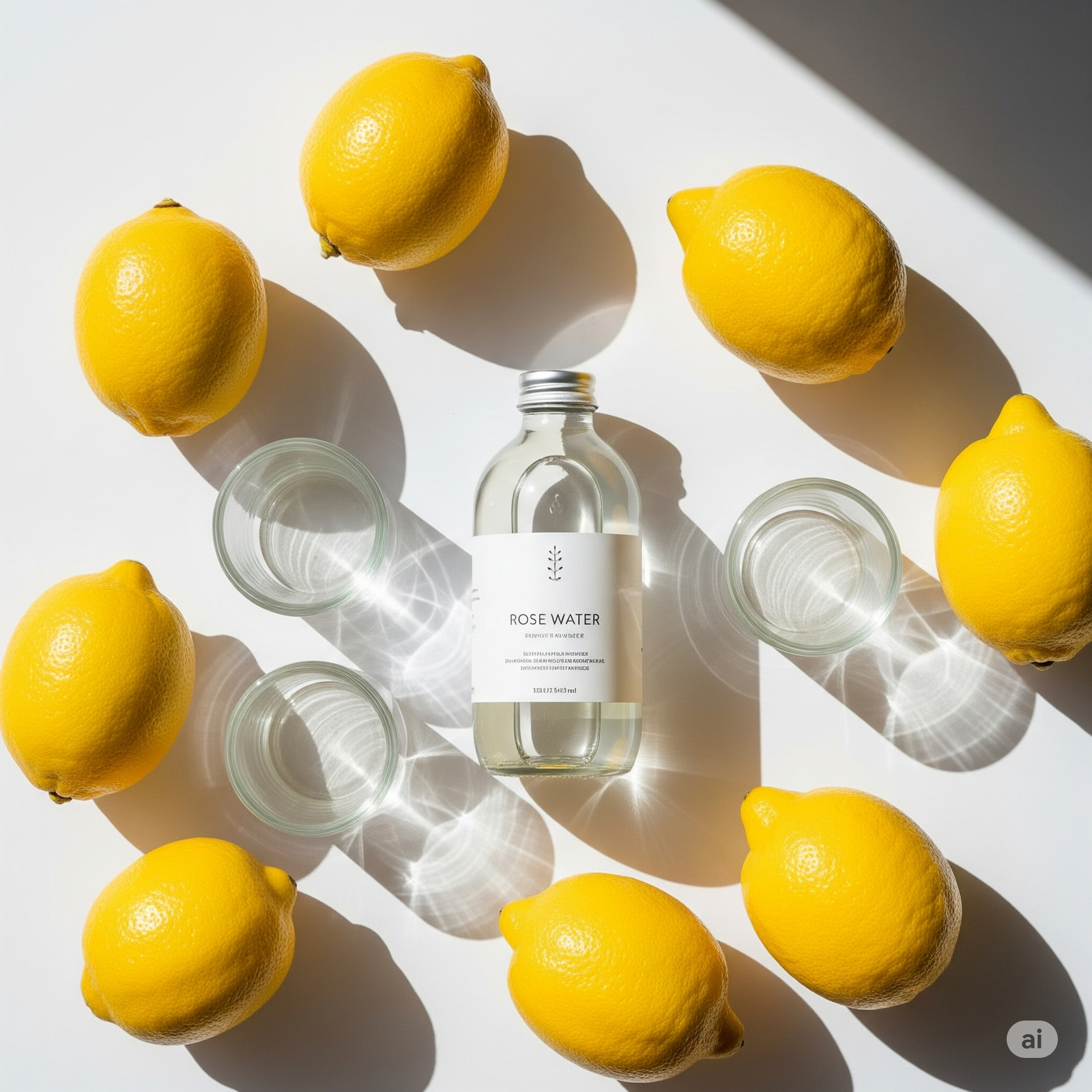
Fresh vitamin C from natural sources has transformed my approach to scar treatment. I create a potent vitamin C serum using fresh lemon juice diluted with rose water, applying it twice daily to affected areas. This combination provides both vitamin C and natural alpha hydroxy acids that promote cell turnover.
However, I’ve discovered that stability is crucial when using natural vitamin C. Fresh preparations work best when made weekly and stored in the refrigerator. Additionally, applying vitamin C treatments at night prevents photosensitivity issues that can worsen pigmentation.
The results become noticeable within three to four weeks of consistent use. My scars appear lighter, and my skin texture begins improving as collagen production increases. Nevertheless, patience remains essential since natural vitamin C works more gradually than synthetic forms.
Honey’s Healing Properties for Scar Reduction
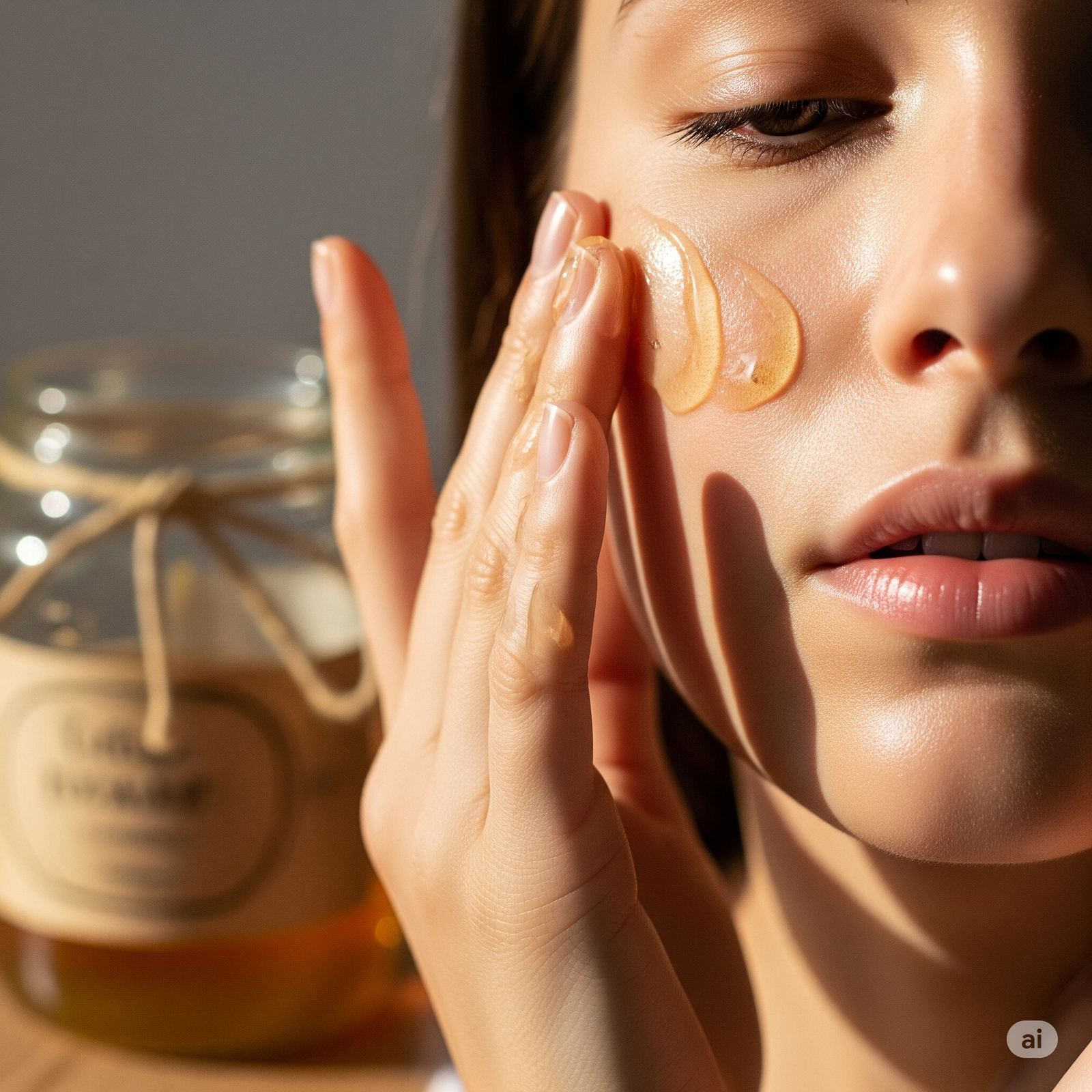
Raw Manuka honey has become one of my most trusted natural scar treatments. Its antibacterial properties prevent secondary infections that can worsen scarring, while its natural enzymes gently exfoliate dead skin cells and promote healthy tissue regeneration.
I apply raw honey as a face mask three times weekly, leaving it on for 20-30 minutes before rinsing with warm water. The immediate hydrating effect helps plump the skin around scars, making them less noticeable while the long-term healing properties work on actual scar tissue.
Moreover, honey’s natural humectant properties maintain optimal moisture levels that support the healing process. This consistent hydration prevents the dry, tight feeling that often accompanies other natural treatments and keeps skin supple during the repair process.
Aloe Vera: Nature’s Skin Regenerator
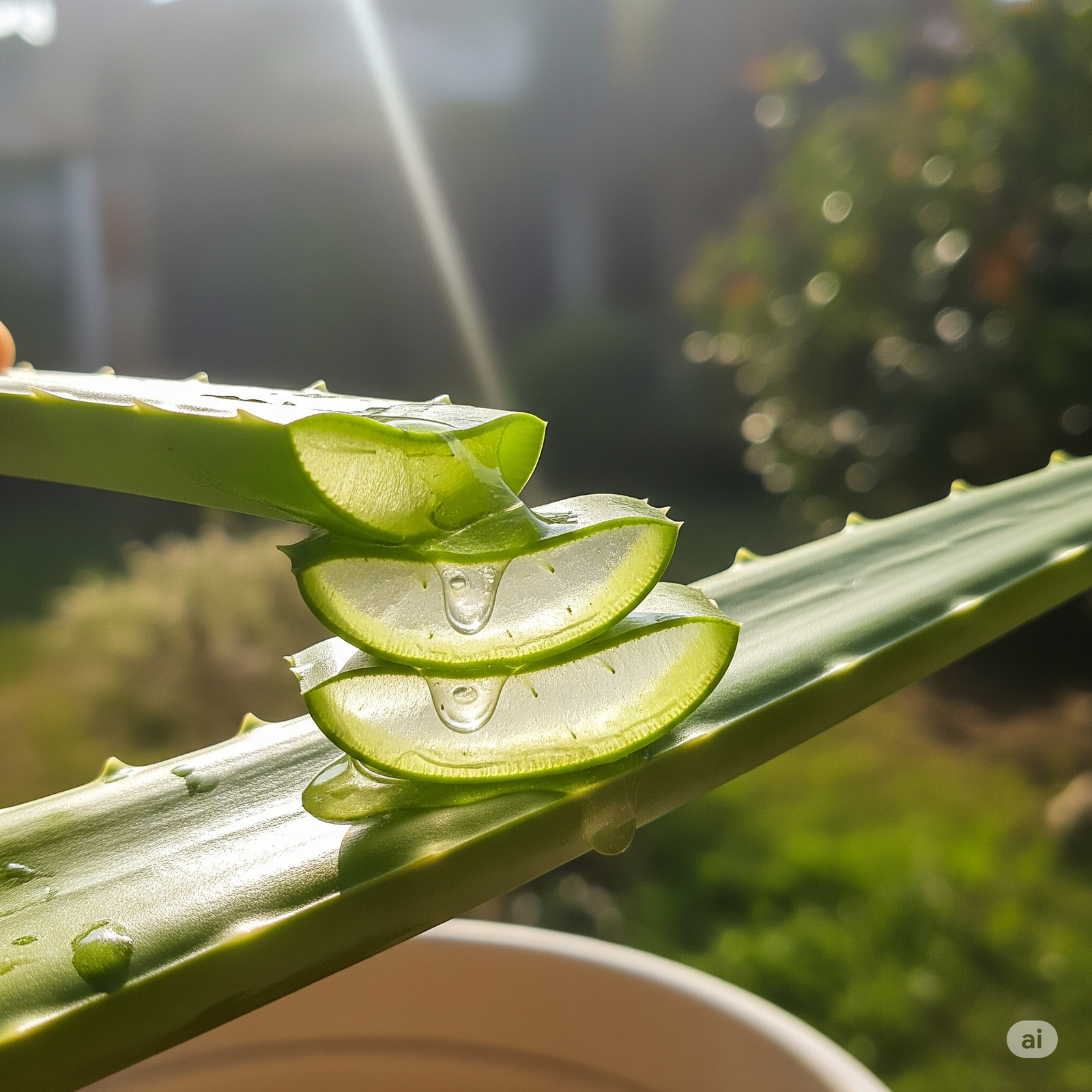
Fresh aloe vera gel directly from the plant provides unmatched healing properties for acne scars. I cut fresh aloe leaves and extract the clear gel, applying it twice daily to scarred areas. The natural growth factors and amino acids in fresh aloe stimulate cellular repair and reduce inflammation.
The cooling sensation provides immediate relief from any irritation while the active compounds work on deeper scar tissue. Additionally, aloe’s natural moisturizing properties create an optimal healing environment without clogging pores or causing breakouts.
Within two weeks of consistent use, I notice reduced redness and improved skin texture. The combination of anti-inflammatory compounds and regenerative properties makes aloe vera particularly effective for newer scars that are still in the active healing phase.
Rosehip Oil: The Vitamin A Alternative
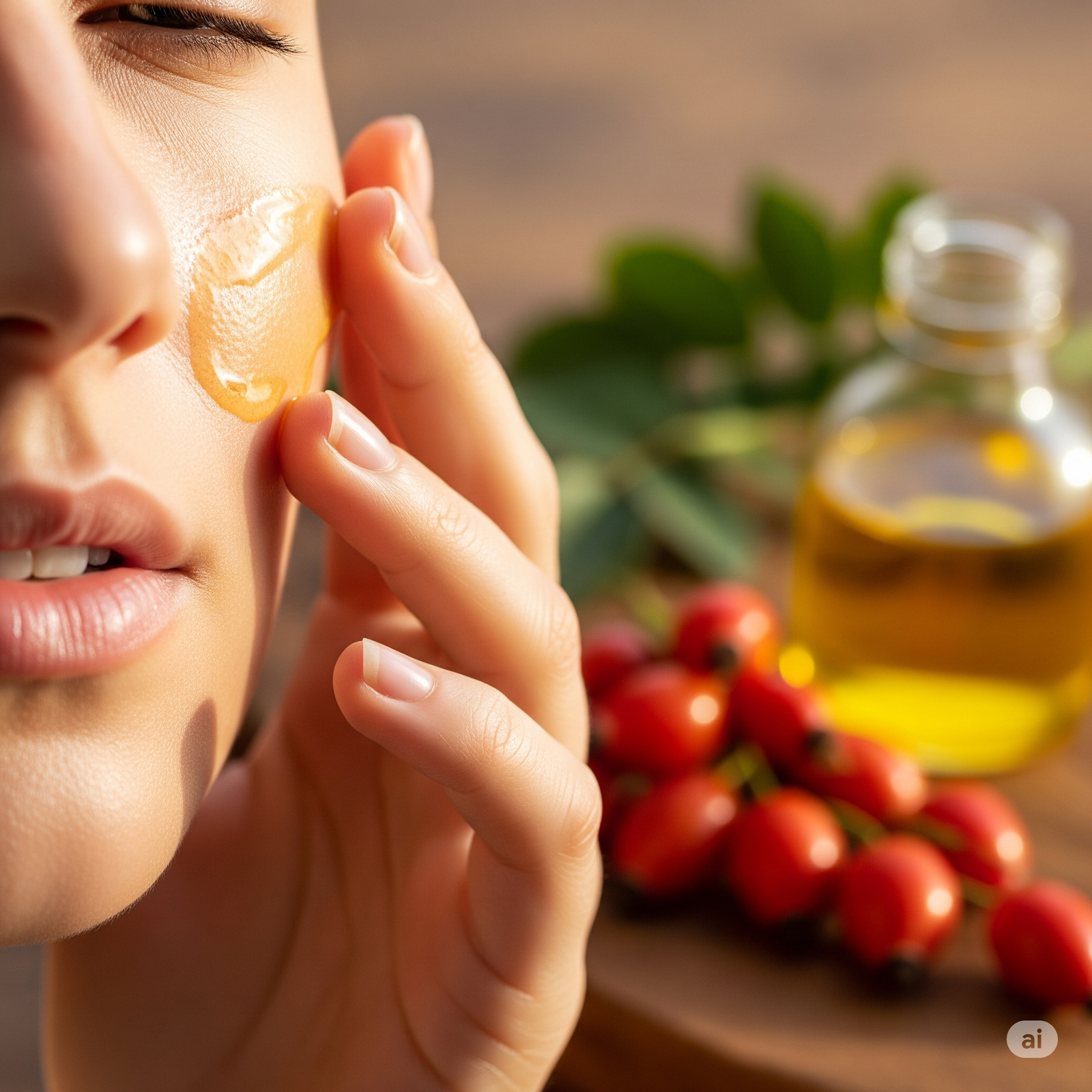
Cold-pressed rosehip oil has replaced expensive retinoid treatments in my natural skincare routine. This oil contains natural retinoids, vitamin C, and essential fatty acids that promote skin regeneration and reduce scar appearance without the irritation associated with synthetic alternatives.
I apply rosehip oil every evening after cleansing, focusing on scarred areas with gentle massage motions. The oil absorbs quickly without leaving a greasy residue, making it suitable for all skin types including acne-prone skin.
The natural retinoids in rosehip oil accelerate cell turnover, helping to shed damaged skin cells and reveal healthier tissue underneath. Furthermore, the essential fatty acids support the skin barrier function and provide anti-inflammatory benefits that prevent additional scarring.
Turmeric: The Anti-Inflammatory Miracle
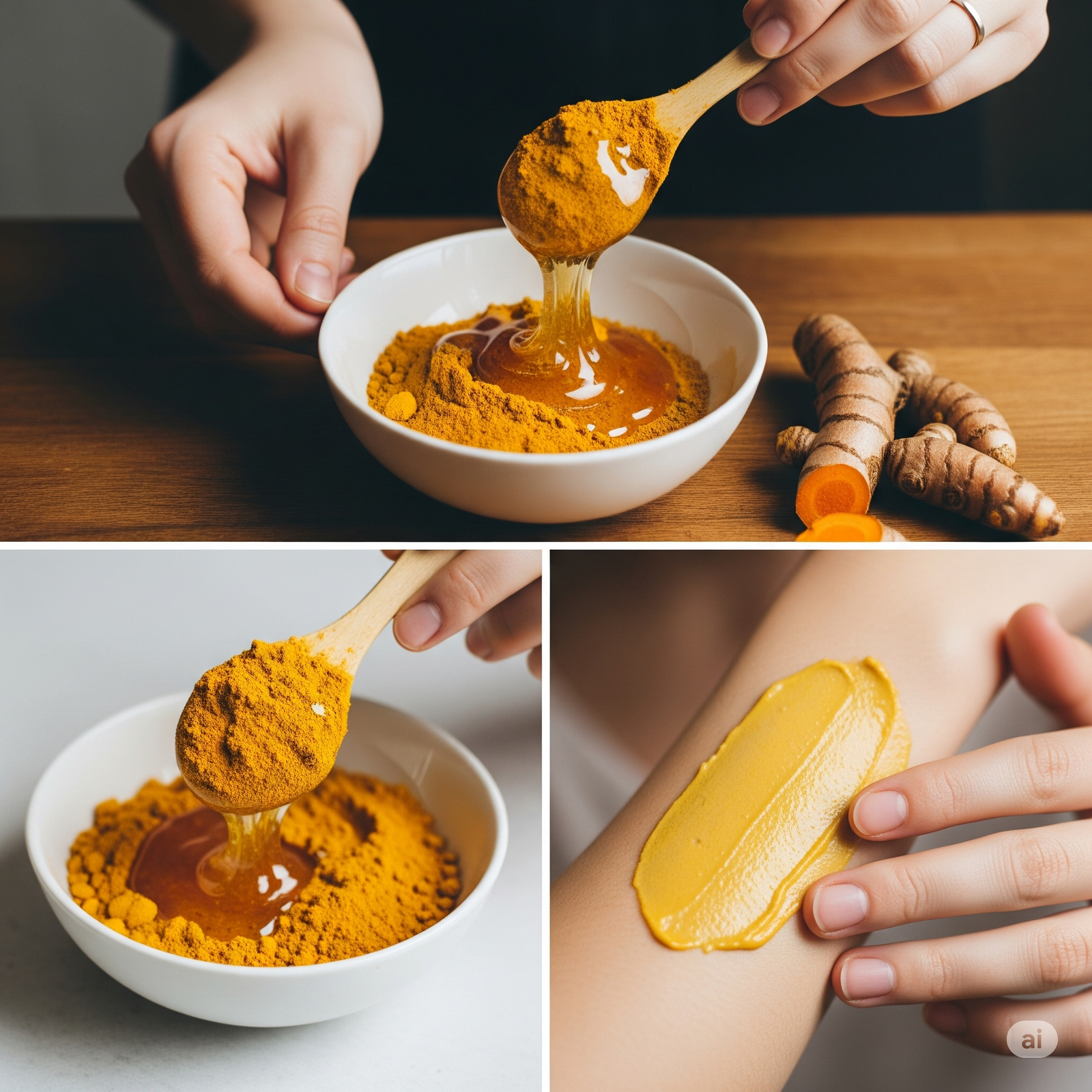
Fresh turmeric paste has become a weekly treatment in my scar-fighting arsenal. I combine fresh turmeric powder with honey and a few drops of lemon juice to create a powerful anti-inflammatory mask that reduces scar-related inflammation and promotes healing.
The curcumin in turmeric provides potent anti-inflammatory and antioxidant properties that address both the appearance and underlying causes of acne scarring. However, I’ve learned to use turmeric sparingly to avoid temporary skin staining.
After using turmeric treatments for six weeks, I noticed a significant improvement in both scar texture and overall skin tone. The anti-inflammatory effects help prevent new breakouts while the antioxidant properties protect existing healing tissue from further damage.
Also Get To Know More About Skin Care Here
Green Tea: Antioxidant Protection and Healing
Cooled green tea has become my daily toner for treating acne scars naturally. The polyphenols in green tea provide powerful antioxidant protection while the natural tannins help tighten pores and improve skin texture around scarred areas.
I brew strong green tea, allow it to cool completely, and then apply it with cotton pads twice daily. The catechins in green tea reduce inflammation and provide antimicrobial benefits that prevent secondary infections in healing scar tissue.
Additionally, I use green tea ice cubes for targeted treatment of raised scars. The combination of cold therapy and antioxidant compounds helps reduce scar height while the caffeine content improves circulation to promote healing.
Natural Exfoliation Techniques
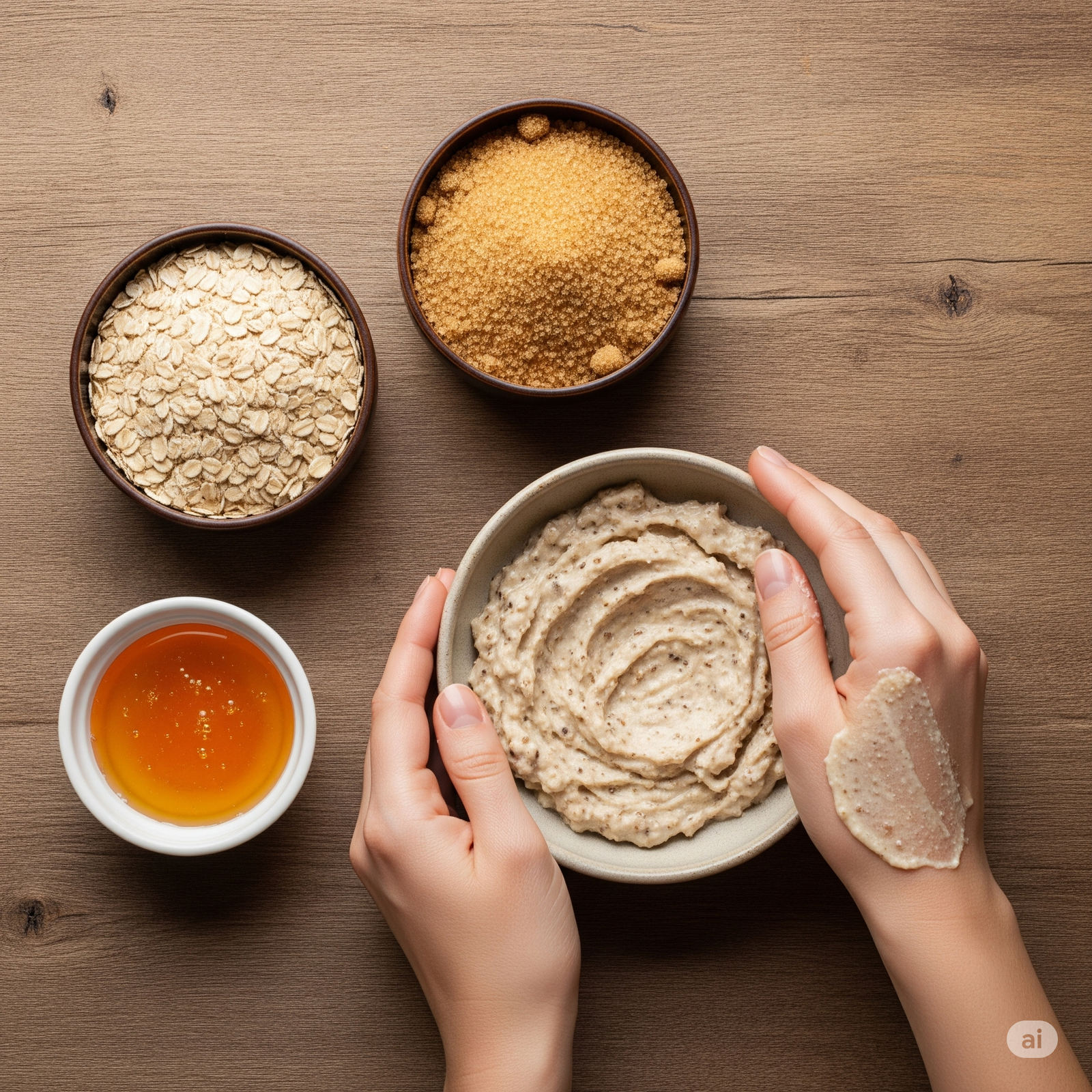
Gentle exfoliation accelerates the natural healing process by removing dead skin cells and promoting cellular renewal. I create natural exfoliating treatments using ingredients like oatmeal, brown sugar, and yogurt that provide effective exfoliation without causing micro-tears or irritation.
My favorite weekly exfoliant combines finely ground oatmeal with honey and a small amount of lemon juice. This mixture provides both physical and chemical exfoliation while delivering healing and lightening properties to scarred areas.
However, I’ve learned that moderation is key to natural exfoliation. Over-exfoliating can worsen scarring and increase inflammation, so I limit intensive exfoliation to once or twice weekly while using gentler daily methods.
Dietary Support for Scar Healing
Internal nutrition plays a crucial role in skin healing and scar reduction. I’ve increased my intake of vitamin C-rich foods like citrus fruits, berries, and leafy greens to support collagen production from within. Additionally, foods high in zinc, such as pumpkin seeds and legumes, provide essential minerals for tissue repair.
Anti-inflammatory foods like fatty fish, walnuts, and turmeric help reduce overall inflammation that can impede the healing process. Moreover, staying adequately hydrated supports cellular function and maintains the skin’s natural healing capacity.
I also avoid foods that promote inflammation, such as processed sugars and dairy products, which can worsen acne and potentially slow scar healing. This dietary approach complements topical treatments and accelerates overall improvement.
Creating Effective Treatment Combinations
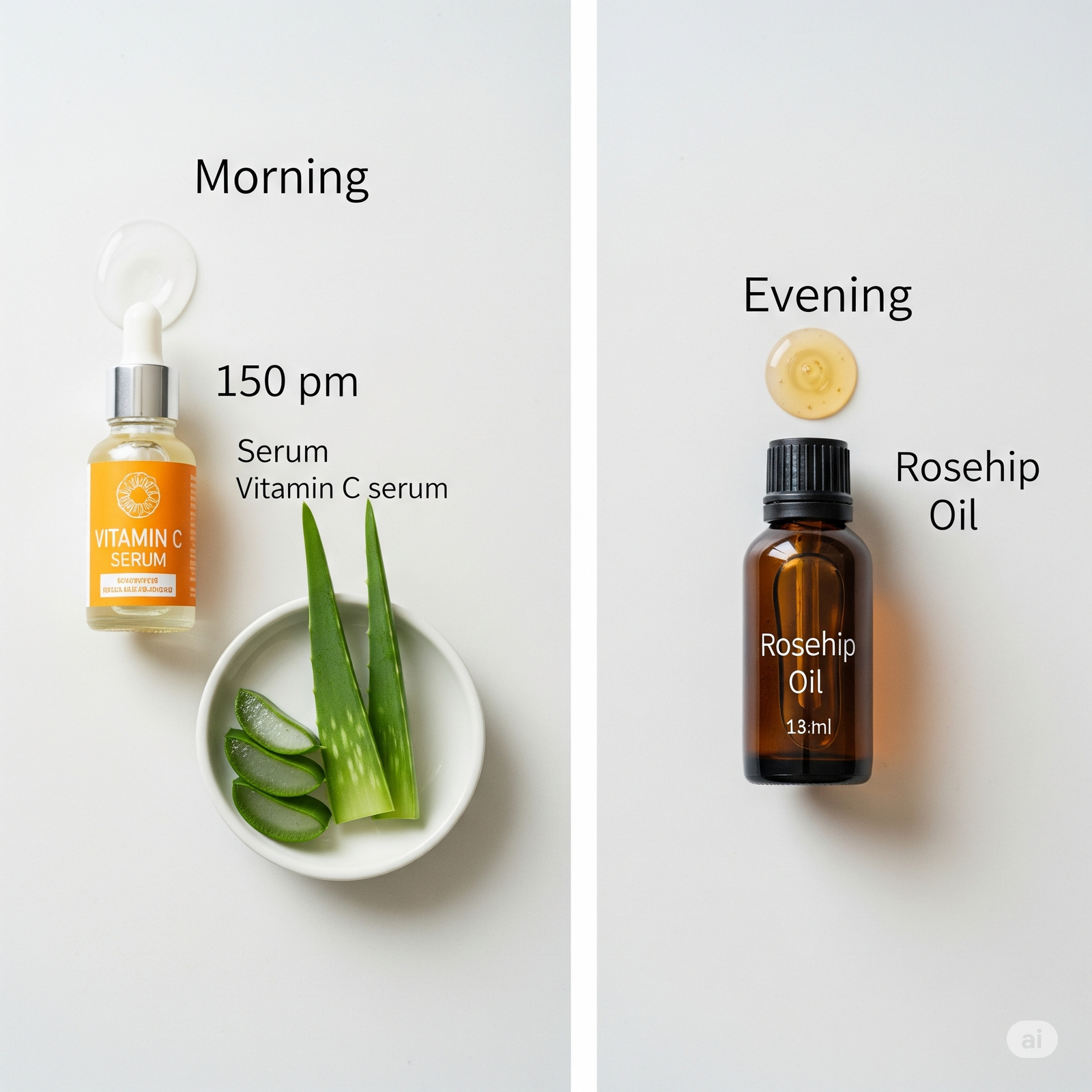
The most dramatic results occur when combining multiple natural treatments strategically. I typically use vitamin C treatments in the morning, followed by aloe vera for hydration, and then apply rosehip oil in the evening for overnight repair.
Weekly intensive treatments include honey masks, turmeric applications, and gentle exfoliation on alternating days to avoid over-treating the skin. This systematic approach ensures consistent progress without overwhelming sensitive healing tissue.
Furthermore, I track my progress with weekly photos to monitor improvements and adjust treatments as needed. This documentation helps identify which combinations work best for my specific scarring pattern and skin type.
Timeline and Realistic Expectations
Natural scar treatments require patience and consistency to achieve meaningful results. I typically see initial improvements in skin texture and tone within two to three weeks, with more significant changes becoming apparent after six to eight weeks of consistent treatment.
Deeper, more established scars may require three to six months of dedicated natural treatment to achieve optimal results. However, the gradual improvement often appears more natural than aggressive treatments and comes with fewer side effects.
Setting realistic expectations prevents discouragement and helps maintain consistency with natural treatment routines. Moreover, understanding that natural healing takes time allows for proper evaluation of treatment effectiveness.
Safety Considerations with Natural Treatments
While natural ingredients are generally safer than synthetic alternatives, they can still cause reactions in sensitive individuals. I always perform patch tests before trying new natural treatments and start with lower concentrations to assess tolerance.
Some natural ingredients, particularly citrus-based treatments, can increase photosensitivity and require careful sun protection. Additionally, certain combinations of natural ingredients may cause unexpected reactions, so I introduce new treatments gradually.
If irritation occurs, I immediately discontinue the problematic treatment and return to gentler options like aloe vera or honey until the skin recovers. This cautious approach prevents setbacks and maintains steady progress toward scar improvement.
FAQs
How quickly can natural remedies fade acne scars?
With consistent use, natural remedies typically show initial improvements within 2-3 weeks, with significant changes visible after 6-8 weeks. Deeper scars may require 3-6 months of treatment.
Can natural treatments work on old acne scars?
Yes, natural treatments can improve old acne scars, though they may take longer to show results compared to newer scars. Consistent application and patience are key for established scarring.
Are natural scar treatments safe for sensitive skin?
Most natural treatments are gentler than chemical alternatives, but patch testing is essential. Start with mild ingredients like aloe vera and honey before progressing to stronger options like lemon juice or turmeric.
Which natural ingredient works fastest for acne scars?
Vitamin C from fresh sources typically shows the quickest results for pigmentation, while honey and aloe vera provide rapid healing benefits. Combining multiple ingredients often accelerates overall improvement.
Can I use natural treatments with other skincare products?
Yes, most natural treatments can be integrated with existing skincare routines. However, avoid combining multiple active ingredients simultaneously and always patch-test new combinations.
User Insights from Skincare Communities
Reddit’s r/SkincareAddiction community consistently reports success with honey masks and rosehip oil for acne scar treatment. Users emphasize that consistency matters more than using expensive products, with many seeing significant improvements in using kitchen ingredients.
Quora discussions reveal that combining internal nutrition changes with topical natural treatments produces faster results than either approach alone. Many users recommend documenting progress with photos to track subtle improvements that might otherwise go unnoticed.
